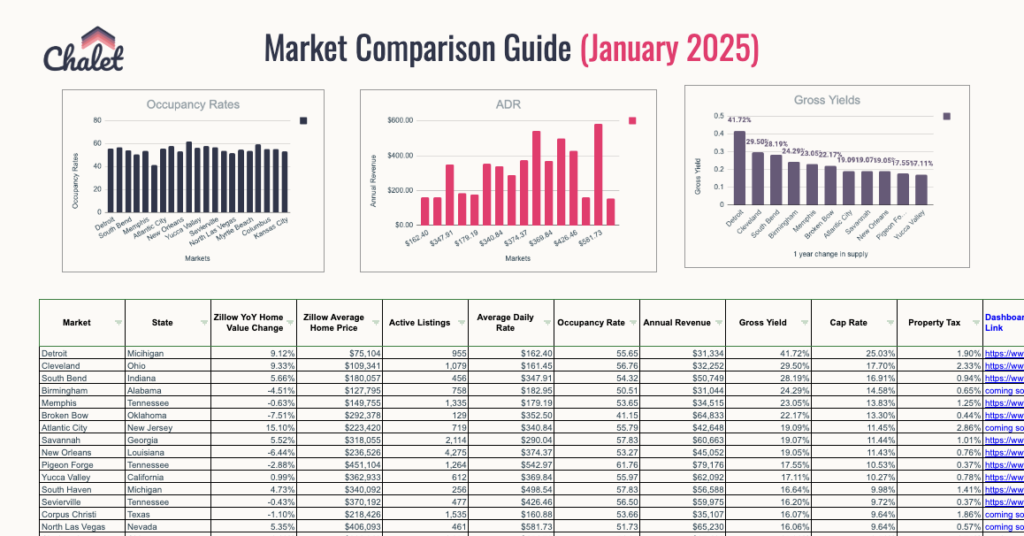Jacksonville, Florida, known for its beautiful beaches, vibrant downtown, and rich history, is a popular destination for tourists. As a result, the city has seen a surge in short-term rentals, particularly through platforms like Airbnb.
However, with the rise of these rentals, Jacksonville has implemented various regulations to ensure that the growth of the short-term rental market is balanced with the needs of the community. This blog post will provide a comprehensive overview of the current regulations governing short-term rentals in Jacksonville, FL, using the term “Airbnb” interchangeably with short-term rentals.
Understanding Short-Term Rentals in Jacksonville
Short-term rentals, often referred to as vacation rentals, are properties that are rented out for a period of less than 30 days. These can include entire homes, apartments, or individual rooms. Platforms like Airbnb have made it easy for property owners to rent out their spaces to travelers, providing an alternative to traditional hotels and motels.
Regulatory Framework for Short-Term Rentals
Registration and Licensing
In Jacksonville, property owners who wish to operate a short-term rental must obtain a business tax receipt and a certificate of use from the city. These requirements ensure that the property meets all local zoning and safety regulations. The application process typically involves:
- Business Tax Receipt: This is essentially a business license that must be renewed annually. The cost varies based on the type and size of the rental property.
- Certificate of Use: This certificate confirms that the property complies with zoning regulations and is suitable for use as a short-term rental. It involves an inspection of the property to ensure it meets safety standards.
Zoning Regulations
Zoning laws in Jacksonville play a crucial role in determining where short-term rentals can operate. The city has designated certain zones where short-term rentals are permitted, and others where they are restricted or prohibited. Generally, short-term rentals are allowed in residential, commercial, and mixed-use zones, but there may be additional restrictions based on the specific neighborhood.
Safety and Health Standards
To protect guests, Jacksonville requires short-term rental properties to meet specific safety and health standards. These include:
- Fire Safety: Properties must have functioning smoke detectors, fire extinguishers, and emergency exit routes.
- Building Code Compliance: The property must comply with all local building codes, which may include standards for electrical systems, plumbing, and structural integrity.
- Sanitation: The property must be kept clean and sanitary, with adequate waste disposal and pest control measures in place.
Top 100 Airbnb Rental Markets

Instantly compare top 100 short-term (Airbnb) rental markets in the US
Occupancy Limits
Jacksonville imposes occupancy limits on short-term rentals to prevent overcrowding and ensure the safety of guests. The maximum number of occupants is typically based on the number of bedrooms and the overall size of the property. For example, a two-bedroom rental might be limited to four to six guests.
Noise and Nuisance Regulations
To maintain neighborhood peace and prevent disturbances, Jacksonville has implemented noise and nuisance regulations for short-term rentals. Property owners are responsible for ensuring that their guests comply with these rules, which include:
- Noise Limits: Quiet hours are usually enforced between 10 PM and 7 AM. During these hours, noise levels must be kept to a minimum.
- Parking: Short-term rentals must provide adequate parking for guests. On-street parking may be limited in some areas to prevent congestion.
- Trash and Recycling: Property owners must provide clear instructions for trash and recycling disposal to avoid littering and maintain cleanliness.
Tax Obligations
Airbnb hosts in Jacksonville are required to collect and remit local occupancy taxes, also known as transient rental taxes. These taxes are similar to those imposed on hotels and help fund local services and infrastructure. The current tax rate for short-term rentals in Jacksonville includes:
- State Sales Tax: 6%
- County Tourist Development Tax: 5%
- Local Option Tax: 1%
These taxes must be collected from guests and remitted to the appropriate authorities, typically on a monthly or quarterly basis.
Compliance and Enforcement
To ensure compliance with these regulations, Jacksonville has established a system for monitoring and enforcing short-term rental rules. This includes:
- Inspections: The city conducts regular inspections of short-term rental properties to ensure they meet all safety and zoning requirements.
- Complaints and Violations: Residents can file complaints about short-term rentals that violate local regulations. The city investigates these complaints and can issue fines or revoke permits for non-compliance.
- Penalties: Property owners who fail to comply with short-term rental regulations may face penalties, including fines, suspension of their business tax receipt, or legal action.
Resources for Airbnb Hosts
For property owners considering or currently operating short-term rentals in Jacksonville, several resources are available to help navigate the regulatory landscape:
- City of Jacksonville Business Tax Receipt Information: Link
- Certificate of Use Application: Link
- Zoning Information: Link
- Fire Safety Requirements: Link
- State Sales Tax Information: Link
- County Tourist Development Tax Information: Link
Conclusion
Operating a short-term rental in Jacksonville, FL, requires careful adherence to a variety of regulations designed to ensure the safety and well-being of guests and the community. By understanding and complying with these rules, property owners can provide a positive experience for their guests while contributing to the local economy. Whether you’re an experienced Airbnb host or just starting, staying informed about the latest regulations is crucial for successful and compliant short-term rental operations in Jacksonville.

